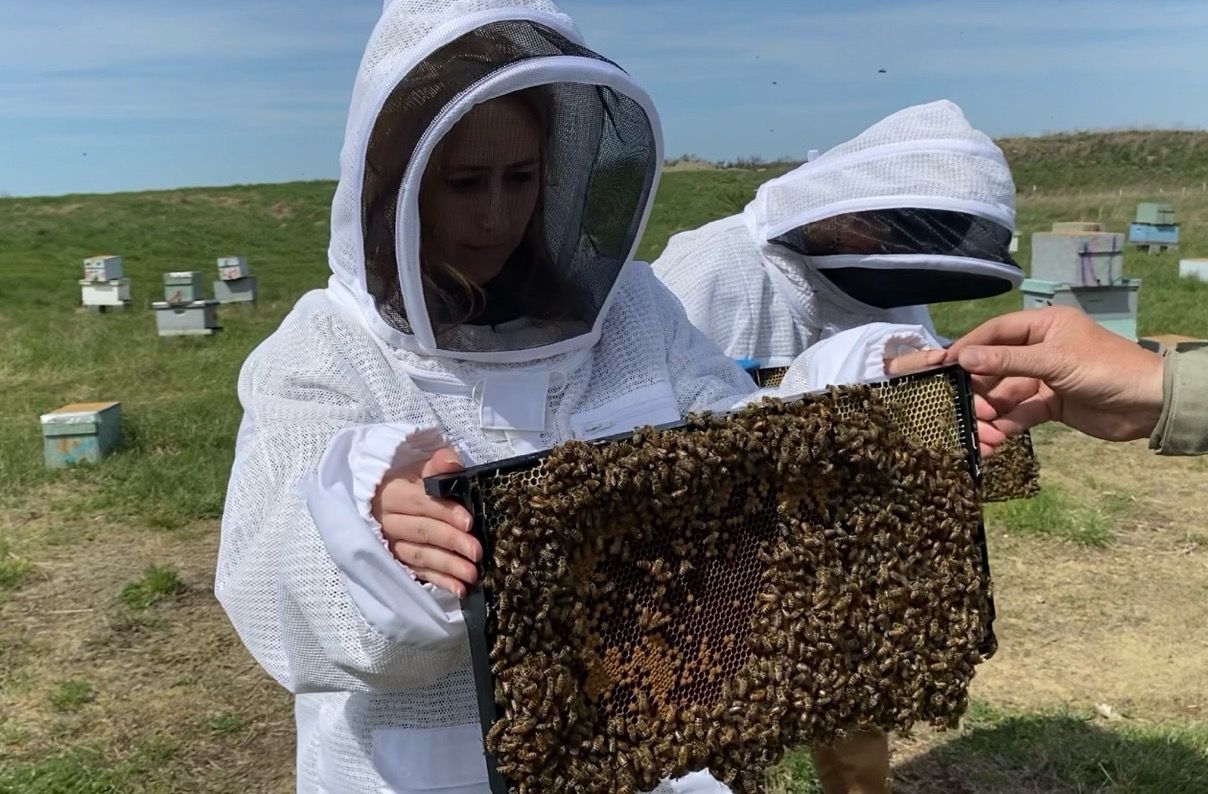How PIT became a haven for honeybees
What started as a grounded Delta flight in 2012 is now one of the country's largest airport apiaries — home to as many as 4 million honeybees.
Why it matters: The beekeeping initiative at Pittsburgh International Airport protects pollinators and keeps passengers safe.
Zoom in: PIT has over 150 honeybee colonies, located on unused grasslands away from passenger areas. The program is led by master beekeeper Stephen Repasky and Allegheny County Airport Authority wildlife administrator Ben Shertzer.
- The airport colonies produce 3,000-4,000 pounds of honey annually, sold locally by Repasky's Meadow Sweet Apiaries at the Sewickley Farmers Market.
Catch up quick: The effort took off more than a decade ago when thousands of honeybees swarmed the wing of a Delta plane during refueling, briefly delaying the flight and making national headlines.
- Instead of calling pest control, PIT turned to Repasky to safely relocate the bees.
- After repeated bee swarm disruptions, Shertzer proposed placing hives and swarm boxes on airport land, and the idea gained momentum in 2015 with support from new PIT CEO Christina Cassotis.
- "The footprint of these areas isn't very large, and they're not suitable for development anyway," says Shertzer.

The big picture: PIT's pesticide-free grounds and diverse forage provide a safe haven for honeybees, which face nationwide decline from parasites, pesticides and habitat loss, Repasky says.
By the numbers: Bees of all sorts pollinate about 75% of U.S. fruits, nuts, and vegetables, per the USDA, adding over $15 billion in crop value annually.
- Honeybee colony losses in the U.S. could surge to 60-70% this year, Washington State University entomologists warn, up from the 40–50% seen annually over the past decade.
Fun fact: Bee swarms without a hive are a natural, temporary part of colony growth, Repasky says. The bees are usually docile — more focused on protecting their queen — and often move on within a few days.
What they're saying: In addition to beekeeping, Repasky offers educational workshops and encourages the public to call a beekeeper — not an exterminator — when they spot swarms.
- "It's about being good stewards of the environment," he says.

댓글
댓글 쓰기